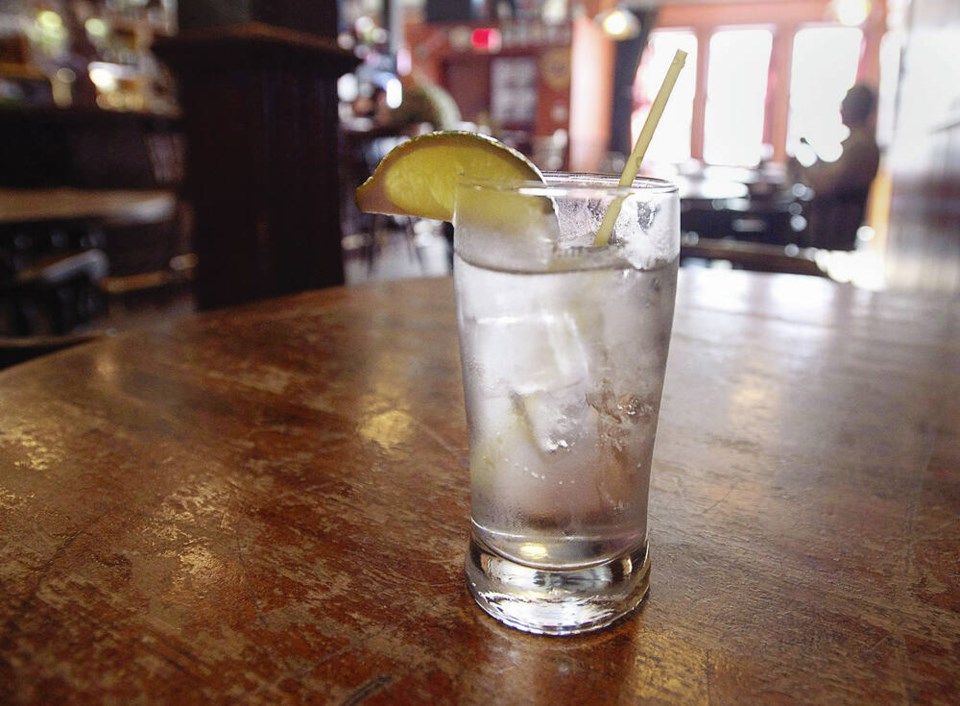A commentary by a Victoria resident.
Almost 21 years ago, on Nov. 5, 2002, I had a massive heart attack and I was in a coma for three days. It would prove to be one of the best things that ever happened to me.
This attack, in part, was caused by poor choices that I made daily. Thankfully, I survived.
I spent five or six days in the hospital and upon being released the most surprising thing happened — most people offered me a drink of wine or a cocktail. Every. Place. I. Went.
Here I was healing from major physical trauma combined with minor brain damage, a history of daily drinking and burning the candle at both ends, frantically trying to keep it all together; I was a high-functioning daily drinker and alcoholic, yet the first thing most people did was offer me a drink.
Well meaning, educated people, too. This is shockingly indicative of how we have normalized alcohol and drugs in our society.
It took me about six months to realize that I had to stop drinking. On June 14, 2003, I woke up tired of being sick, tired and remorseful, and I chose at that moment to become sober for my husband, for my kids and for myself.
Little did I know that I was also choosing to be a “rebel” in my community.
The following is a list — 20 thoughts from 20 years of sobriety — that I compiled 20 years later, on June 14, 2023:
1. It is not a personal failure to become addicted to drugs and alcohol. They are designed that way.
2. The opposite of addiction is connection. However, connection fuelled by alcohol or drugs is mostly artificial and superficial. The fear of vulnerability is lessened when we numb ourselves.
This unrecognized and unexamined pattern repeats itself over and over. Allowing ourselves to be vulnerable while sober takes great courage initially. That courage is rewarded and authentic, lasting connections are the result.
3. Life is hard, for everyone. This is not optional. Attempting to escape the difficulty with drugs and alcohol creates disconnection and suffering. This is where we have a choice.
4. Not everyone is going to like me; actually when I am true to myself — most won’t.
5. Your sobriety, whether you like it or not, will make some people uncomfortable. They might fear your judgment; they might judge themselves. To resist this, they will instinctively judge and alienate you. Do not take this personally.
6. Often, those closest to me will find my sobriety the hardest.
7. Those in intimate relationships will find their partners oftentimes subconsciously resistant to your sobriety as your dynamic may have been established on your (or both of your) drunkenness — your courage and vulnerability here will help redefine your relationship and deepen your love.
8. You may lose friends, but the good ones will return. It might take a long time; have patience and don’t take it personally. Yes, it is incredibly hard.
9. Service can be another form of addiction. When you’re ready, learn to say no.
10. Exercise and nature bring you a high, based on presence and embodiment rather than escapism and numbness. It doesn’t get any better than that.
11. Every day is a gift. Say that every morning until you start to believe it.
12. On-demand treatment and ongoing monthly counselling should be free and available to everyone. The brain synapses of addiction run deep.
13. Therapy and support can help us rewire our brains. Books are great, but it took a therapist to help me unravel my need to numb myself.
14. Addiction and recovery services today are money-making industries. Be conscious of this. Ask the tough questions. Keep everyone aware of their ultimate intentions. Choosing sobriety is free.
15. Self-respect and integrity are what help me to sleep at night.
16. Forgiveness and acceptance are what I am striving for.
17. I am enough. So are you.
18. Focus on one healthy relationship at a time. Beginning with your husband and your kids. Your family of creation is where your energy should go. Learning boundaries is essential.
19. The most important thing that we can offer ourselves, our children and our community is our own healing.
20. Government needs to put attention to addiction prevention. Breathing techniques to calm the nervous system, mindfulness teachings and cognitive behavioural therapy need to be taught to everyone, young and old.
Community schools should be open 12 months a year where life skills are available and where children can find hope and connection. There are far too many cracks that our children can fall through.
Something we can all do immediately is to normalize sobriety. This is totally up to us. If someone does not imbibe in mind-altering substances there is absolutely no reason to ask why.
Doing so is purposeful and intentional alienation.
And buy parkland — nature really is our salvation.
>>> To comment on this article, write a letter to the editor: [email protected]



